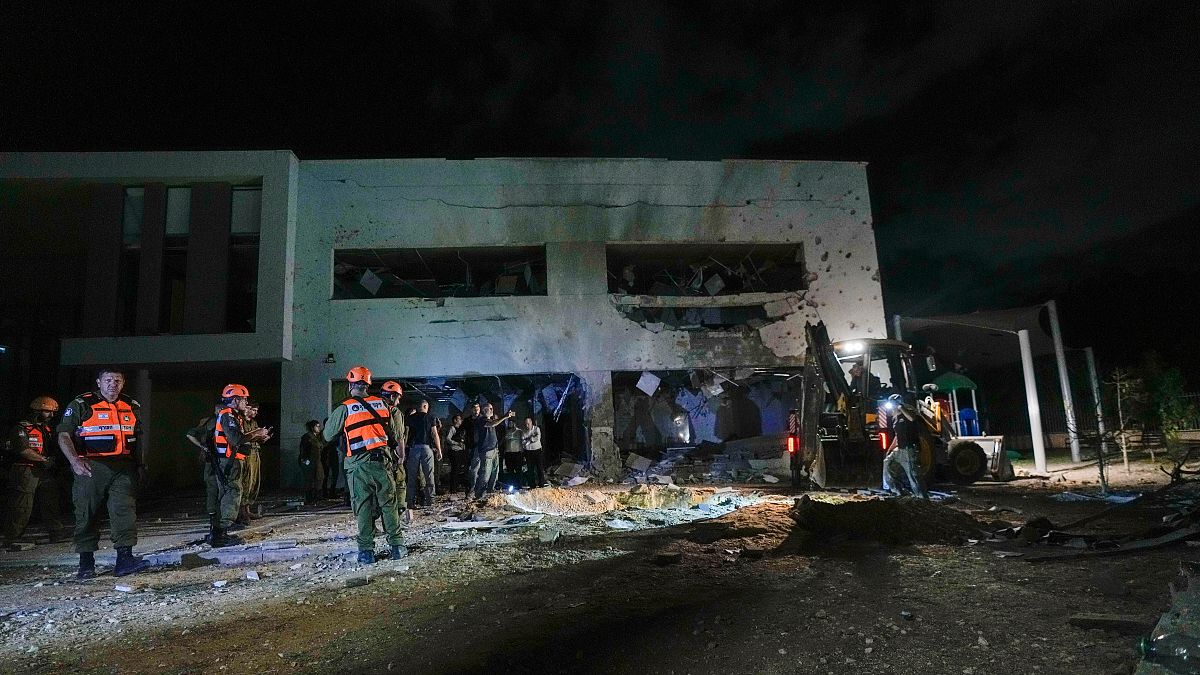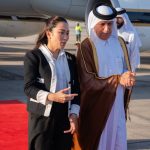Political leaders from across Europe have spoken out against Iran’s recent ballistic missile strikes on Israel, expressing concern over the potential consequences of the attack. European Commission President Ursula von der Leyen urged all parties to protect innocent civilians and called for a ceasefire in the affected regions. Israeli Prime Minister Benjamin Netanyahu has promised retaliation for the missile strikes, which came in response to Israeli army’s bombardment of Lebanon. The ongoing tit-for-tat attacks have raised fears of a regional escalation, prompting calls for restraint from European leaders.
The European Union’s foreign policy chief Josep Borell warned that the continuous attacks risk fuelling an uncontrollable escalation in the region. European Council President Charles Michel has expressed the EU’s readiness to support efforts to deescalate tensions and prevent a regional war. UK Prime Minister Keir Starmer and German Chancellor Olaf Scholz both strongly condemned Iran’s actions, emphasizing the importance of preventing further violence and pushing the region towards war. Spain’s President Pedro Sánchez called for an immediate end to the spiral of violence and stressed the need for lasting peace through eventual ceasefires between the parties involved.
The conflict between Israel, Hamas, and Hezbollah has resulted in significant casualties, with thousands of Palestinians losing their lives in Gaza due to Israeli airstrikes and ground incursions. The attacks by Iran and subsequent retaliation by Israel have raised concerns about the possibility of a full-fledged war in the region. The EU leaders are calling for all parties to exercise restraint and work towards resolving the conflict through diplomatic means. The situation is fragile and requires a coordinated effort to prevent further bloodshed and preserve the fragile peace in the Middle East.
The missile strikes on Israel by Iran have escalated tensions in the already volatile region, drawing strong condemnation from leaders across Europe. The attacks come in the midst of ongoing conflicts between various parties, including Israel, Hamas, and Hezbollah, resulting in a high number of casualties and displacement of civilians. The EU leaders have called for an immediate ceasefire and the release of all hostages held in the region, emphasizing the need to protect innocent lives and prevent further violence. The international community is closely monitoring the situation and is ready to support efforts to deescalate tensions and prevent a wider conflict in the Middle East.
The European leaders have emphasized the importance of dialogue and diplomacy in resolving the conflict and avoiding a full-scale war in the region. The continuation of tit-for-tat attacks risks spiraling out of control and causing further suffering to innocent civilians. The EU’s foreign policy chief has urged all parties to refrain from further violence and seek peaceful solutions to the ongoing crisis. The immediate priority is to stop the bloodshed and prevent the situation from deteriorating further, leading to a devastating regional war that would have catastrophic consequences for the Middle East and beyond.
The Israeli Prime Minister’s vow to retaliate against the missile strikes from Iran raises concerns about further escalation and the potential for a wider conflict involving multiple countries in the region. The EU leaders are united in their condemnation of the attacks and their call for all parties to respect international law and human rights in the midst of the crisis. The delicate balance of power in the region requires a careful approach to prevent a catastrophic war that would have far-reaching implications for global security. The international community must work together to find a peaceful resolution to the conflict and prevent further bloodshed in the Middle East.










